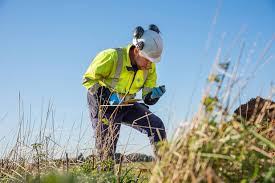New Environmental Protection Law Passed in Egypt
Egypt: New Environmental Protection Law Passed Egypt has recently passed a new environmental protection law, signaling a significant step forward in the country's efforts to safeguard its natural resources and address environmental degradation. With growing concerns over pollution, deforestation, and dwindling biodiversity, the implementation of this law is expected to bring about positive changes environmental sustainability consultant in the preservation and conservation of Egypt's environment. This development reflects the government's commitment to sustainable development and the protection of its ecosystems for future generations. The new law is poised to play a crucial role in shaping the country's environmental policies and practices for years to come.
The new environmental protection law in Egypt was recently passed to address various issues related to environmental protection and conservation. The law includes provisions for the regulation of industrial emissions, the protection of natural resources, and measures to prevent pollution. It also seeks to promote sustainable development and ensure compliance with international environmental standards. The passing of this law reflects the government's commitment environmental sustainability consulting firms to addressing environmental challenges and promoting a healthier and more sustainable environment for all Egyptians.
The Evolution of Egypt's Environmental Protection Law

The Egypt environmental environmental testing and consulting protection law, enacted in 1994, aimed to safeguard the country's natural resources and promote sustainable development. This legislation encompasses various aspects, including air and water quality, waste management, and conservation of biodiversity. Despite this, enforcement of the law faces challenges, such as limited resources and lack of awareness. With ongoing efforts, there has been progress in raising awareness and enforcing regulations to protect Egypt's environment and public health. Partnerships with civil society organizations and increased public engagement are essential in ensuring the effective implementation of environmental protection measures in Egypt.
The Evolution of Egypt's Environmental Protection Law has been a gradual process marked by the country's increasing recognition of the need for environmental conservation and sustainable development. The law has gone through several amendments and updates to address new environmental challenges and align with international standards. The establishment of the Ministry of Environment in 1997 marked a significant milestone in Egypt's environmental governance, leading to more focused efforts in environmental protection and management. The latest amendments in 2019 aimed to strengthen environmental regulations and enforcement mechanisms, signaling Egypt's commitment to environmental sustainability. These developments reflect the evolving understanding of the importance of environmental protection in Egypt's overall development agenda.
Challenges and Progress in Enforcing Environmental Laws in Egypt

Challenges in enforcing environmental laws in Egypt mainly stem from a lack of resources, weak institutional capacity, and inadequate enforcement mechanisms. There is also a lack of public awareness about environmental laws and their importance, which contributes to non-compliance. However, there has been progress in addressing these challenges. Egypt has shown a commitment to improving environmental law enforcement by introducing stricter regulations and penalties for violations. The government has also increased its efforts to raise public awareness about environmental issues and the importance of complying with environmental laws. Additionally, there has been an increase in collaboration between government agencies, environmental organizations, and international partners to enhance enforcement efforts and improve compliance with environmental laws. Overall, while there are challenges in enforcing environmental laws in Egypt, there has been significant progress in addressing these issues and improving the effectiveness of environmental law enforcement.
Understanding the Impact of Egypt's Environmental Protection Legislation
environmental consulting firms

Egypt's environmental protection legislation has been implemented to address the country's environmental challenges, including air and water pollution, inadequate waste management, and damage to natural habitats. The legislation aims to mitigate the adverse effects of industrial activities, urbanization, and population growth on the environment. It also seeks to preserve Egypt's rich biodiversity and natural resources. Key components of Egypt's environmental protection legislation include laws and regulations related to air and water quality, waste management, environmental impact assessments for development projects, and the protection of natural reserves and protected areas. The legislation also establishes penalties for environmental violations and promotes public awareness and participation in environmental conservation efforts. Understanding the impact of Egypt's environmental protection legislation is crucial for evaluating its effectiveness in addressing environmental issues and promoting sustainable development. It involves assessing the enforcement of environmental laws, their impact on reducing pollution and preserving natural resources, and their contribution to promoting a culture of environmental responsibility and stewardship in Egypt. Additionally, evaluating the legislation's effectiveness can help identify areas for improvement and inform future policy and regulatory measures to enhance environmental protection in the country.
The Role of Citizens in Supporting Egypt's Environmental Protection Law

The role of citizens in supporting Egypt's Environmental Protection Law is crucial for its success. Citizens can contribute to environmental protection by implementing sustainable practices in their daily lives, such as reducing waste, conserving water and energy, and supporting local initiatives that promote biodiversity and conservation efforts. Additionally, citizens can advocate for the enforcement of environmental laws, report violations, and participate in community clean-up and conservation projects. By actively engaging in environmental stewardship, citizens can help ensure the preservation of Egypt's natural resources for future generations.
Egypt's Commitment to Sustainable Development through Environmental Legislation
environmental consulting services
Egypt has demonstrated its commitment to sustainable development through the implementation of comprehensive environmental legislation. This includes laws and regulations aimed at addressing issues such as air and water pollution, waste management, and biodiversity conservation. Through these efforts, Egypt aims to mitigate the negative impacts of development on the environment and promote the sustainable use of natural resources. Additionally, the government has made strides in promoting renewable energy and reducing carbon emissions, further showcasing its dedication to environmentally sustainable practices.
Key Components of Egypt's Environmental Protection Law
The key components of Egypt's Environmental Protection Law include regulations for air and water quality, waste management, and environmental impact assessments for development projects. The law also outlines penalties for violating environmental regulations, as well as mechanisms for public participation and consultation in environmental decision-making. Additionally, the law establishes the National Environmental Authority to oversee and enforce environmental protection measures.
The Need for Continued Advocacy for Environmental Protection in Egypt
Continued advocacy for environmental protection in Egypt is crucial for several reasons. One of the most pressing issues facing the country is pollution, particularly air and water pollution. The rapid industrialization and urbanization in Egypt have led to the degradation of air and water quality, which has serious implications for public health. Additionally, Egypt is vulnerable to the impacts of climate change, including rising sea levels and extreme weather events. Continued advocacy for environmental protection is necessary to mitigate these effects and to promote sustainable development practices. Furthermore, Egypt is home to several unique and ecologically important habitats, such as the Nile River and the Red Sea coral reefs. These ecosystems are under threat from pollution, overfishing, and other human activities. Advocacy for their protection is essential to preserve biodiversity and ensure the long-term sustainability of these natural resources. Overall, continued advocacy for environmental protection in Egypt is vital for safeguarding public health, addressing the impacts of climate change, and conserving the country's natural heritage. It is crucial to engage with government officials, industry leaders, and the public to promote sustainable policies and practices that protect the environment for future generations.